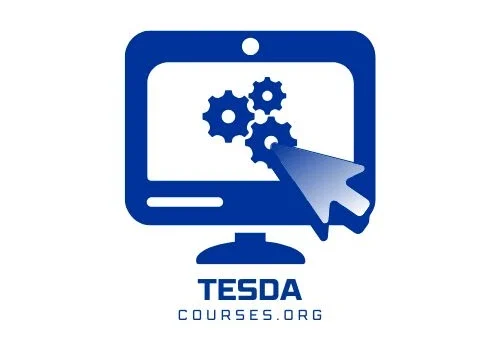Ultimate Guide to TESDA Gender and Development Courses: Free Gender Sensitivity & Diversity Training
Gender and Development courses from TESDA provide essential training for promoting inclusivity, equality, and diversity awareness in workplaces and communities. These free GAD courses offer comprehensive understanding of gender concepts, sensitivity development, and practical strategies for implementing gender-responsive programs. This ultimate guide explores TESDA’s complete Gender and Development curriculum, detailing how these programs can transform organizational cultures and promote social inclusion throughout the Philippines.
The Growing Importance of Gender and Development Training
The Philippines has made significant strides in gender equality, ranking 19th globally in the 2023 Global Gender Gap Report. However, implementation of Gender and Development principles remains essential across all sectors. The Philippine Commission on Women reports that organizations with comprehensive GAD programs experience 25% higher employee satisfaction and 30% better retention rates.
TESDA’s Gender and Development courses address the critical need for gender sensitivity in workplaces, educational institutions, and government agencies. These programs align with the Magna Carta of Women (Republic Act 9710) and support the United Nations Sustainable Development Goal 5 on gender equality. The GAD training provides practical tools for creating inclusive environments free from discrimination and bias.
Working in Gender-Diverse Environments
Foundation of Gender Sensitivity
This essential Gender and Development course provides fundamental orientation on gender concepts, social inclusion, and equality principles. Participants develop crucial awareness about gender diversity, learning to recognize and address unconscious biases that may affect workplace dynamics and decision-making processes.
Curriculum Components and Learning Outcomes
The module covers gender terminology, LGBTQ+ awareness, sexual orientation and gender identity expression (SOGIE) concepts, and strategies for preventing gender-based discrimination. Participants learn communication techniques for inclusive environments, conflict resolution in gender-related issues, and best practices for supporting diverse team members.
Practical Applications and Implementation
Through case studies and interactive exercises, participants develop skills for creating gender-fair policies, addressing microaggressions, and promoting inclusive leadership practices. The course emphasizes practical strategies for immediate implementation in various workplace settings, from corporate environments to government offices and educational institutions.
Gender Analysis and Mainstreaming Techniques
Comprehensive Gender Analysis
This advanced GAD course equips participants with tools for conducting thorough gender analysis across programs and policies. Trainees learn to identify gender gaps, assess differential impacts of programs on various genders, and develop targeted interventions to address identified disparities.
Mainstreaming Strategies and Approaches
The module covers integration of gender perspectives in planning, implementation, and evaluation processes. Participants learn to apply gender lenses to organizational policies, program development, and service delivery systems. The training includes practical techniques for ensuring gender considerations become institutionalized rather than isolated initiatives.
Monitoring and Evaluation Frameworks
Trainees develop skills in establishing gender-sensitive indicators, tracking progress on gender equality goals, and evaluating the effectiveness of GAD initiatives. The course emphasizes data collection methods that capture gender-disaggregated information and analysis techniques that reveal underlying gender dynamics.
GAD Planning and Budgeting Strategies
Strategic Planning for Gender Equality
This practical Gender and Development course focuses on developing effective GAD plans aligned with organizational goals and legal requirements. Participants learn to conduct gender audits, set realistic gender equality targets, and design actionable programs that address identified gender issues.
Budget Allocation and Resource Management
The module covers techniques for integrating gender considerations into budgeting processes, including gender-responsive budgeting methodologies. Participants learn to allocate resources effectively for GAD initiatives, track gender-related expenditures, and demonstrate return on investment for gender equality programs.
Compliance and Reporting Requirements
Trainees gain understanding of legal requirements under the Philippine GAD Budget Policy, learning to prepare accurate GAD plans and budgets that meet government standards. The course includes practical guidance on documentation, reporting procedures, and compliance monitoring mechanisms.
Implementation Across Various Sectors
Government Agencies and LGUs
Gender and Development training is particularly crucial for government employees and local government unit (LGU) staff. The course provides specific guidance on implementing the GAD mandate in public service, including mainstreaming gender in local legislation, public programs, and community services.
Private Sector Applications
Corporations and businesses benefit significantly from GAD courses through improved workplace culture, enhanced innovation from diverse perspectives, and better market understanding. The training includes sector-specific examples from manufacturing, services, technology, and other industries.
Educational Institutions
Schools and universities implement Gender and Development principles through inclusive curricula, safe learning environments, and gender-sensitive teaching methodologies. The course provides educators with tools for addressing gender issues in educational settings and promoting equality among students and staff.
Success Stories from GAD Training
Several government agencies have reported remarkable improvements after implementing TESDA’s Gender and Development training. The Department of Education noted a 40% reduction in gender-based complaints after mandatory GAD training for all teaching staff. A major Philippine bank reported increased female leadership representation from 25% to 42% within two years of comprehensive GAD implementation.
Local government units in Region IV-A demonstrated improved efficiency in delivering gender-responsive services, with beneficiary satisfaction rates increasing by 35% after GAD training for frontline staff. These success stories highlight the tangible benefits of investing in Gender and Development courses across various sectors.
Comprehensive Enrollment Process
Enrolling in TESDA’s Gender and Development courses follows an accessible process designed for working professionals and students alike. Participants can register through the TESDA Online Portal or attend in-person sessions at designated training centers. The GAD courses typically require no prior qualifications, making them accessible to anyone interested in promoting gender equality.
The training combines theoretical foundations with practical workshops, case studies, and group discussions. Most programs range from 3-5 days for basic courses to 2-3 weeks for advanced certification programs. Many organizations enroll entire teams to ensure consistent understanding and implementation of GAD principles across their operations.
Legal Framework and Compliance Requirements
The Philippines has established a robust legal framework for Gender and Development implementation. The Magna Carta of Women (RA 9710) mandates all government agencies to allocate at least 5% of their budgets to GAD programs. The Philippine Commission on Women provides guidelines and monitoring for GAD implementation across all sectors.
TESDA’s Gender and Development courses ensure participants understand these legal requirements and develop practical skills for compliance. The training covers relevant laws, administrative orders, and memorandum circulars that govern GAD implementation in different sectors, providing participants with comprehensive knowledge of their legal obligations and opportunities.
Future of Gender Equality in the Philippines
The future of Gender and Development in the Philippines looks promising, with increasing recognition of its importance across all sectors. Emerging trends include digital gender equality, LGBTQ+ rights advocacy, and intersectional approaches that consider multiple aspects of identity beyond gender alone.
TESDA continuously updates its GAD courses to address these evolving trends, ensuring participants receive the most current and relevant training available. The integration of technology in GAD implementation, remote work considerations, and global best practices keeps the curriculum at the forefront of gender equality education.
Start Your Gender and Development Journey Today
Gender and Development courses from TESDA provide essential skills for creating inclusive, equitable, and productive environments in all sectors. With free access to quality training and comprehensive support materials, these programs offer valuable opportunities for personal and professional growth while contributing to national development goals.
Ready to promote gender equality? Enroll in TESDA’s Gender and Development courses today and take the first step toward creating more inclusive workplaces and communities.







